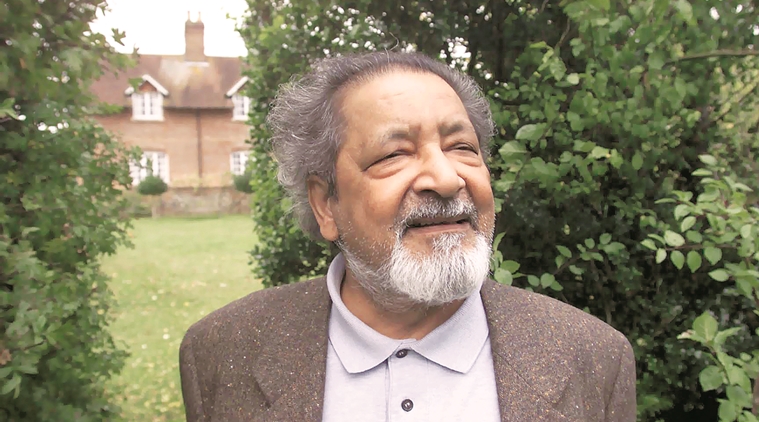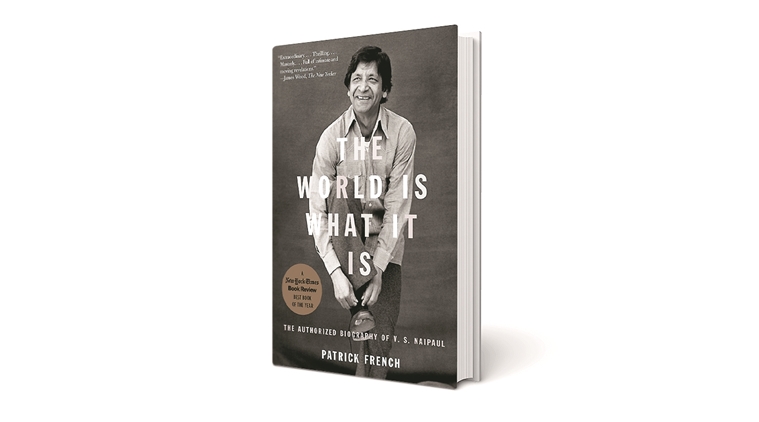VS Naipaul: His Way in the World
Writers and critics remember the many facets of the literary great

V S Naipaul (AP)
Shashi Deshpande(Writer)
The first book by Naipaul I read was A House for Mr Biswas. I was extremely delighted by that book. It was so different and so unusual for that time. In those days, there was very little fiction except what came from England. Much later, I read The Enigma of Arrival, which is a marvellous work. It is a writer’s book. His language is superb, there is no question about it. But I have very mixed feelings about him. He is an excellent writer, but is also someone with a lot of complexes. It came from having your ancestry in a country that you despise and living in a country which you do not want to like, and then finally landing up in a country you know is not yours. I am sure it was a hard life, moving from West Indies to England, and trying to find his place there.
I think it was important for him to reject his Indian ancestry. It made it possible for him to move into the English mainstream easily. But that didn’t endear him to me. That horrible book, An Area of Darkness, offended me as an Indian. Because if you are a writer, you have to know who you are. There was a quality of bitterness in him, which perhaps came from him not being able to accept who he was.
Alienation and exile were the two prominent themes of his work, and that was deeply impacted by his personal life. All of us are, but as an Indian writer, well-rooted in my own soil, well-rooted in Indian literature and culture, I always was a little puzzled by this feeling of not belonging. His views on Muslims, on women writers, on Jane Austen, were very sad. He hadn’t even read Austen, but he called her a sentimental writer. And there’s no writer less sentimental than her. He dismissed all women writers, said he was better than all of them — it was just crass. I remember him coming for that Neemrana conference (2002), and he made strange comments: feminism is banal, colonialism is dated. He even said was that Indian language writers’ books do not sell, and they should write better so that they would sell! What did he know of Indian language writing? I think sometimes too much fame spoils you as a writer. You open your mouth on every damn subject. And he was an example of that.
Sumana Roy(Poet and writer)
The first Naipaul I read was Miguel Street. I knew neither the name of the book nor its author. The kabariwala who’d come to buy old newspapers and magazines from my mother had a pile of aging books in his basket. My brother and I ran through it – we were always greedy for reading material, there being no real bookstores or lending libraries in our small town. I was in high school. I borrowed the book from the kabariwala and read it through the week. The cover and pages 1 and 2 were missing. I read from the third page, not giving up even when I discovered torn and missing pages – I could not. I’d become addicted to the life being described to me.
The enchantment of ordinary and inconsequential talk, the shouting out to people every now and then – I wanted to live on that street. So many sentences stayed with me, the charming sadness of life, of the lives of these people. I read the book again later, at university, where I also read a few other of his books. I haven’t read many of his books, and I certainly haven’t bothered to read any of his imbecilic pronouncements – taunts – about women writers and people from the post-colonies. Very few writers breathe in their sentences as well as Naipaul – I used to study his use of the comma, I still remember.
Patrick French
(Writer and biographer of VS Naipaul)
(Writer and biographer of VS Naipaul)
While I was doing the research for The World Is What It Is, I remember VS Naipaul respecting the need to ask tough questions. He never tried to control what I was writing. And he was entertaining company, even when he was being wickedly funny, in his Trinidadian way.
Naipaul always told the truth as he perceived it. At its best, his writing absolutely had elements of genius. He didn’t disown his Indian ancestry. He tried to comprehend it, and had an ongoing argument with the more insalubrious aspects of Indian life. Naipaul felt understandable resentment that his grandparents had been sent as indentured labourers from Gorakhpur to the Caribbean.
In his fiction, his ability to plot and his characterisation of women were probably his weakest qualities. One thing is for sure: although he has died, his books will go on.
Alok Rai(Former professor, Department of English, University of Delhi)
VS Naipaul’s passing is indeed an occasion for reflection upon the role of literature, of language, in shaping our perceptions of the world — a paradoxical refutation of one of his most resonant sentences — “the world is what it is”. In a sense made inescapable by his own writing, the world is what powerful writers, masters of consciousness, make of it.
The trajectory of Naipaul’s various “makings” of our sad, tragic, doomed postcolonial worlds is, alas, too complex for the summary, valedictory treatment suitable to this sombre moment. We must gather to praise him, of course — but we must make sure to bury him, too.
Ranjit Hoskote(Poet and Critic)
Derek Walcott got it perfectly right when he referred to VS Naipaul as “VS Nightfall”. Naipaul’s was a twisted sensibility, warped by his auto-racism, his ignorant bigotry towards the complex world of Islam, and his loathing of India, which was really an acute self-loathing. Paradoxically, I believe that his finest work drew on the parts of his life that he hated the most — the Caribbean, his birth family, and his vexed and crudely racist attitude towards Africans. His enduring works, for me, are A House for Mr Biswas, The Suffrage of Elvira (an amazing political comedy: that this dour man could orchestrate comedy is a remarkable accomplishment), and A Bend in the River.
Anjum Hasan(Novelist and poet)
For the last few months, I’ve been repeating one of Naipaul’s lines to myself. “When men cannot observe, they don’t have ideas; they have obsessions.” We’re surrounded in our public life by men with obsessions. Naipaul’s ethic as a writer is essentially the ethic of noticing. Notice and not so much savour aesthetically as grab for dear life, nail down details as a way of making a small space for oneself in the world. So he transformed the anxiety of belonging, that constant nerviness about being a foreigner everywhere, into the great gift of seeing. And what you see is not, or should not, be different from who you are. As he says so memorably in The Enigma of Arrival, “Man and writer were the same person. But that is a writer’s greatest discovery. It took time — and how much writing! — to arrive at that synthesis.”
Namita Gokhale(Writer)
In all the times I met Sir Vidya, he was always kind, gentle and thoughtful. The world has lost a great intellect and a great man.






















 The World Is What It Is by Patrick French
The World Is What It Is by Patrick French
No hay comentarios:
Publicar un comentario